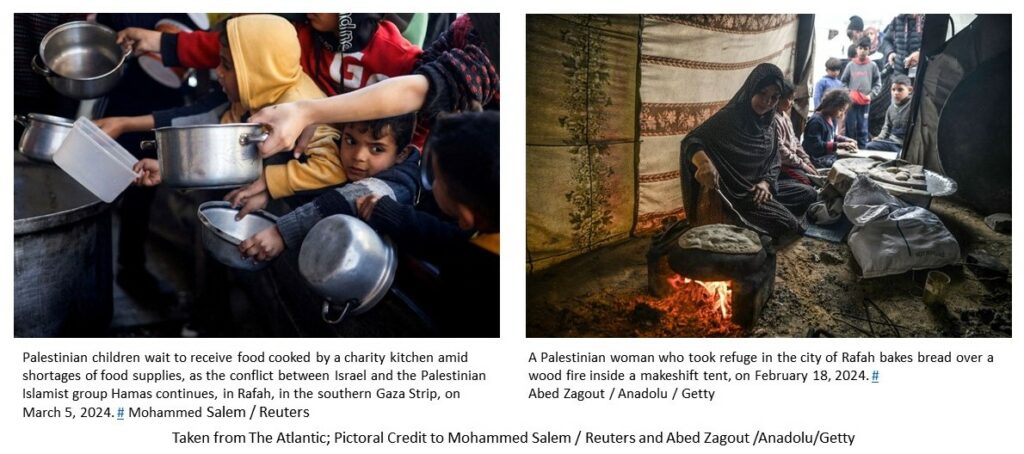The Atlantic, Alan Taylor The United Nations is warning that famine in Gaza is “almost inevitable.” Palestinians living in Gaza are struggling with extreme shortages of food, clean water, and medicine. Several countries, including Jordan, France, Egypt, the U.S., the United Arab Emirates, and now Germany, are coordinating airdrops of humanitarian aid to help alleviate the crisis, and the U.S. military is working to a build a temporary port on Gaza’s coastline to bring in additional aid. Critics have pointed out that airdrops and a temporary pier are insufficient, dangerous, and haphazard operations compared with ensuring a steady and reliable supply of aid delivered by trucks, which might be achieved by a cease-fire agreement. Gathered below are
Topics:
Bill Haskell considers the following as important: politics, The Gaza Strip
This could be interesting, too:
Robert Skidelsky writes Lord Skidelsky to ask His Majesty’s Government what is their policy with regard to the Ukraine war following the new policy of the government of the United States of America.
Joel Eissenberg writes No Invading Allies Act
Ken Melvin writes A Developed Taste
Bill Haskell writes The North American Automobile Industry Waits for Trump and the Gov. to Act
The Atlantic, Alan Taylor
The United Nations is warning that famine in Gaza is “almost inevitable.” Palestinians living in Gaza are struggling with extreme shortages of food, clean water, and medicine. Several countries, including Jordan, France, Egypt, the U.S., the United Arab Emirates, and now Germany, are coordinating airdrops of humanitarian aid to help alleviate the crisis, and the U.S. military is working to a build a temporary port on Gaza’s coastline to bring in additional aid. Critics have pointed out that airdrops and a temporary pier are insufficient, dangerous, and haphazard operations compared with ensuring a steady and reliable supply of aid delivered by trucks, which might be achieved by a cease-fire agreement. Gathered below are recent images from the growing crisis in the Gaza Strip.
You figure out what to say. I believe it is time for Israel to stop.

